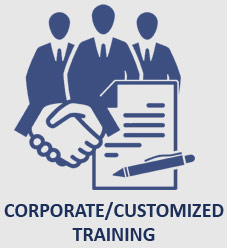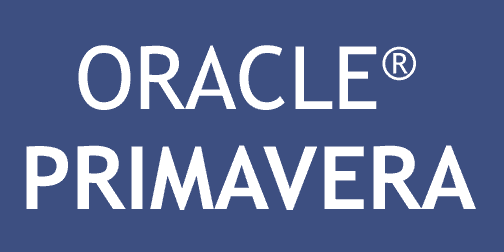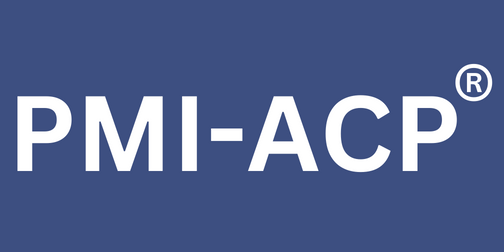
Beyond Certification: The Ongoing Value of Six Sigma Skills
Posted On May 8, 2024 - 17:06 PM
Six Sigma, known for its focus on process improvement and defect reduction, has become a staple methodology in various industries. While achieving certification demonstrates a certain level of mastery, the enduring value of Six Sigma lies in the ongoing application of its principles and tools. This blog delves into the enduring benefits of Six Sigma skills beyond the initial certification, exploring how professionals can leverage their expertise to continuously drive improvement and deliver value in their organizations, long after obtaining their certification.
Six Sigma: Beyond the Belt
Six Sigma, a methodology focused on process improvement and minimizing defects, has become a cornerstone of quality management in the business world. Companies across diverse industries have adopted its principles to streamline operations, reduce costs, and enhance customer satisfaction. While achieving Six Sigma certification demonstrates a commitment to quality and process excellence, the true value lies in the ongoing application of Six Sigma skills beyond the initial certification.
The Evolution of Six Sigma: From Manufacturing to a Holistic Approach
Initially centered on statistical process control and defect reduction, Six Sigma has evolved into a comprehensive approach encompassing various methodologies and tools.
Key principles of Six Sigma include:
-
Customer Focus: Understanding and exceeding customer expectations is paramount.
-
Data-Driven Decision Making: Decisions are based on verifiable data and statistical analysis, not assumptions.
-
Process Improvement: Continuously identifying and eliminating process variations to minimize defects.
-
Leadership Commitment: Strong leadership support and involvement are essential for successful implementation.
-
Employee Engagement: Empowering and engaging employees at all levels to contribute to improvement initiatives.
Core methodologies within Six Sigma are:
-
DMAIC: Define, Measure, Analyze, Improve, Control - a five-phase method for improving existing processes.
-
DMADV: Define, Measure, Analyze, Design, Verify - a five-phase method for designing new processes or products.
Over time, Six Sigma has expanded beyond its manufacturing origins to encompass various sectors, including service industries, healthcare, finance, and more. Its principles remain relevant, providing a structured framework for organizations to achieve operational excellence and deliver value.
Six Sigma: A Versatile Toolkit for Diverse Industries
The beauty of Six Sigma lies in its adaptability. Its principles and tools can be applied across a wide range of industries and sectors, proving its versatility and enduring relevance. Let's explore how Six Sigma skills benefit various aspects of business performance:
Process Improvement:
-
Manufacturing: Minimize defects, reduce production time, and optimize resource utilization.
-
Service Industries: Streamline service delivery, enhance customer satisfaction, and improve response times.
-
Healthcare: Reduce medical errors, improve patient care, and optimize hospital operations.
-
Finance: Improve accuracy in financial reporting, streamline processes, and minimize risk.
Cost Reduction:
-
Identifying and eliminating process waste, such as unnecessary steps or delays.
-
Reducing defects and rework, leading to lower production costs.
-
Optimizing resource allocation and improving efficiency.
Overall Business Performance:
-
Enhanced Customer Satisfaction: By delivering consistent quality and exceeding customer expectations.
-
Increased Profitability: Through cost reduction and improved efficiency.
-
Improved Employee Morale: By empowering employees and fostering a culture of continuous improvement.
-
Data-Driven Culture: Promoting a reliance on data for informed decision-making across all levels of the organization.
Six Sigma skills equip professionals with the ability to analyze processes, identify areas for improvement, and implement data-driven solutions, ultimately contributing to enhanced organizational performance and a competitive edge.
Beyond Certification: Continuous Learning in Six Sigma
The dynamic nature of business necessitates continuous learning and development, especially in a field like Six Sigma. Staying abreast of the latest trends and tools ensures that professionals can apply the most effective approaches to address evolving challenges.
Here are some ways to enhance your Six Sigma skills and knowledge:
-
Advanced Certifications: Pursue higher-level certifications like Six Sigma Black Belt or Master Black Belt to deepen your expertise.
-
Industry Events and Conferences: Attend industry conferences and workshops to learn about emerging trends and best practices.
-
Online Courses and Resources: Numerous online platforms offer Six Sigma courses, webinars, and other learning materials.
-
Professional Organizations: Join professional organizations like the American Society for Quality (ASQ) to connect with other practitioners and access valuable resources.
-
Case Studies and Industry Publications: Stay updated on industry advancements by reading case studies and publications related to Six Sigma applications.
Additional Tips:
Apply your skills: Seek opportunities to apply your Six Sigma knowledge in your current role or through volunteer projects. Share your knowledge: Mentor others, share your expertise through presentations or workshops, and contribute to Six Sigma communities. Stay curious: Continuously explore new tools, methodologies, and applications of Six Sigma to expand your skill set.
Remember, the journey of a Six Sigma professional extends far beyond certification. Embrace continuous learning and development to unlock the full potential of your skills and remain at the forefront of process excellence.
The Skills Advantage: Why Six Sigma Expertise is More Than Just a Certification
Six Sigma certification may be a valuable credential, but the genuine worth lies within the transferable aptitudes you pick up. Here's why Six Sigma mastery goes past a certificate:
Problem-Solving Mentality:
Six Sigma prepares you with an organized approach to recognize, analyze, and fathom issues. This consistent, data-driven strategy can be connected to different angles of your work, not fair prepare advancement ventures.
Information Investigation and Elucidation:
You'll create strong skills in information collection, examination, and visualization. This engages you to create fact-based choices and successfully communicate experiences to partners.
Process Improvement:
Six Sigma instructs you to distinguish wasteful aspects and execute arrangements for streamlined forms. This will upgrade proficiency, diminish squandering, and boost by and large efficiency over your ventures.
Customer Focus:
Six Sigma emphasizes understanding client needs and desires. This expertise interprets to made strides in client fulfilment in any part, as you'll be able to plan arrangements that straightforwardly address their prerequisites.
Communication and Collaboration:
Six Sigma ventures regularly include cooperation. You'll sharpen your communication abilities to collaborate successfully with colleagues from distinctive divisions and skill.
The Enduring Value of Six Sigma: A Lifelong Journey
Throughout this post, we've explored the evolution of Six Sigma, its diverse applications across industries, and the ongoing benefits it offers organizations and professionals alike. From process improvement and cost reduction to enhanced customer satisfaction and overall business performance, the impact of Six Sigma is undeniable
.While certification marks a significant milestone, the true value lies in the continuous application and refinement of Six Sigma skills. By embracing lifelong learning, professionals can stay at the forefront of this dynamic field, ensuring their expertise remains relevant and impactful.
Conclusion
In conclusion, whereas Six Sigma certification illustrates your commitment to greatness, the genuine payoff lies within the versatile skillset you pick up. Six Sigma engages you to become a data-driven problem-solver, a handle optimization master, and a solid communicator. These capabilities amplify distance past the domain of certification, bringing enduring esteem to your whole career and situating you for victory in any proficient scene.


















